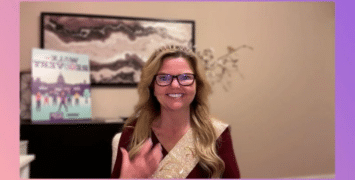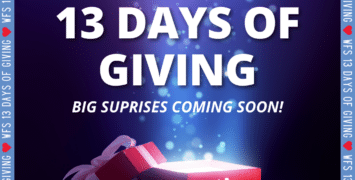Your cart is currently empty!

Monday Thoughts 2/22/21

“The beginning is always today.” ~~Mary Shelley
“The future lies ahead, calling us up, offering us a new chance to make a new choice every day, offering us the chance to go another way, to start over. The possibilities are countless. All you have to do is just dare to take them.” ~~Zøe Haslie
“Sometimes the hardest part isn’t letting go but rather learning to start over.” ~~Nicole Sobon
#9 The past is gone forever.
No longer am I victimized by the past.
I am a new woman.
There is a feeling of freedom in practicing Statement #9, a chance for new beginnings every day. Before sobriety and New Life, each day felt heavy, much like dragging past pain or trauma along. It was easy to settle into a cycle of clinging onto to what was, while standing in the way for what would come.
What is it about the past that can feel so desirable? Is there a different outcome wanted? Is it seeing our children younger with a toothless grin? A time of less responsibility? Whether we cling to moments of joy or regret, the past is gone forever. Acknowledgement of holding onto the past is the beginning of fully living in the present.
In our booklet, “WFS Beginner’s Collection” on page 63 it states “Letting go of our past can usually happen after we work through it. Then we must let go. Letting go of our past happens when we occupy ourselves with our present and with plans for the future.” Is this easy? No. Is it worth it? Absolutely. In our (currently virtual) face-to-face group we have a saying to accompany Statement #9… “The past does not define me.” This can be used as a mantra to alter unhealthy mindsets or can link us to the present moment.
Here are 4 additional ways to put action into Statement #9:
1. Be gentle with yourself: As Maya Angelou beautifully said, “Do the best you can until you know better. Then when you know better, do better. Release regret by understanding that you did the best could with what you had at the time.”
2. Give yourself permission to talk about it: Darkness can increase unease or fear because there is a lack of clarity. Open up to someone you trust, a therapist or other 4C women.
3. Examine and embrace forgiveness: Some things, especially trauma, are difficult to forgive yet when we acknowledge that the result of forgiveness is for ourselves and not the situation or person and that our forgiveness does not erase what happened or create a relationship, it can serve as an empowering tool to increase well-being.
4. Accept that an apology may never come: What do you need to move on? If you only rely on words or actions from another, you remove your ability to manage your emotions and your future. Boundaries, assertiveness and engaging in self-care are more tools to assist in moving forward.
What other tools do you use to put action into Statement #9?
Hugzzz
Karen
Hi 4C Women,
The 4 ways to put action into Statement #9 is to practice what Karen has shared. I so agree that in order to heal from the past, we must work through it. That is how we learn to let go. Just letting go is not the answer – it is healing that provides the ability to let go.
Be gentle with yourself: Back in 1988 when I first started practicing the WFS 13 Statements, I must say Statement #9 became my favorite. It helped me learn how to forgive myself for what I could not change and build confidence in my decision-making which reflects Maya Angelou’s wise words. I became separated in 1990 and the guilt of my past choices was overwhelming. The more I lived in guilt, regret and fear of what the future held, the more I understood that I was victimizing myself. My ex had moved on and I was stuck. While Statement #9 was and is my favorite, it took a few years to work through and heal from the past.
Talk about it: I wonder how many of us have hid our feelings, pretending everything is okay. That’s a huge burden, a trigger for me and a wall so tall that healing feels almost impossible. I love that WFS provides a safe place to share, learn and grow. If I felt I would be judged or made to feel inadequate when sharing, I would have lost the ability to heal and TRUST not only others but myself.
Embrace Forgiveness: Forgiveness of self and others I feel is the path to healing. I learned a lot about forgiveness over the years. The two things that helped me a lot is that forgiveness does not mean reconciliation. It can lead to that but it is not guaranteed or even perhaps healthy to maintain a relationship. Forgiveness means that the hurt or harm caused by another can no longer have power over you and the second thing is that you may have to forgive yourself and another person more than once! That’s quite common because those feelings from the past tend to come back to visit every now and then.
Forgiveness has helped me learn to make peace with my past. If regret or guilt comes to visit, I do not unpack those bags. When the old messages and hurt from the past starts to take center stage, I have to remind myself that those people involved usually aren’t even in my life or around anymore. Forgiveness is what you do for yourself, not for other people. When you forgive, it doesn’t mean that you approve what’s happened. Rather, it means you’re giving yourself permission to move on with your New Life.
Boundaries: Nancy Cross once asked the question that when we are living in the past, feeling extreme hurt and pain, “Who packed your bags?” I think of that when I start feeling anxious, guilty or regretful. She shared that when the baggage became too heavy, she looked for a cart to carry it and that cart was her addiction. Her old baggage was packed by voices from the past, i.e., parents, other family members, friends, co-workers, teachers, ex-spouse, her own voice echoing her lack of self-confidence.
Each of us has a choice to continue carrying that luggage or to repack it as we see fit to lighten our daily load. We can unpack all the “shoulds”, the “can’ts” and the “I wish I would haves.” We can toss out the guilt and shame we carried for so many years. WE have a choice. Now when those hurtful thoughts from the past arise, I tell myself these two things: I cannot change those painful parts of my life and I also have the choice of recalling the positive memories, images and joy from the past. This is a choice as well.
While I may feel melancholy, I also realize the gifts, the blessings, the joy in having those memories to look back on. These are boundaries I’ve created on my thoughts of the past. I choose to search for the joy and release the pain. It no longer serves a purpose other than to victimize myself. No longer will I be victimized by the past. I am a new woman.
“The past does not define me!” Just those few words can release the past, heal and no longer victimize ourselves, Dee



